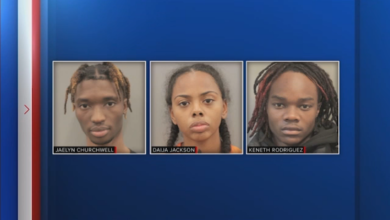Germany’s Scholz speaks with Putin, demands Russia withdraw from Ukraine

A German government spokesperson said that Chancellor Olaf Scholz held direct talks via telephone Friday with Russian President Vladimir Putin during which he demanded the withdrawal of Russian troops from Ukraine and that Russia show a willingness to negotiate a just and lasting peace.
A statement from German government spokesperson Steffen Hebestreit said Scholz condemned Russia’s war of aggression against Ukraine and called on Putin to end it and withdraw troops.
The statement said the chancellor reaffirmed Germany’s unwavering determination to support Ukraine in its fight against Russian aggression for as long as necessary. The brief statement did not include a response from Putin.
The spokesperson said Scholz spoke with Ukrainian President Volodymyr Zelenskyy before his call with the Russian leader and intended to call him again afterwards. Media reports say that call lasted about an hour.
Reuters news agency reported the Kremlin confirmed the call, which it said had come at Berlin’s request. The news agency reported the Kremlin said Putin told Scholz any agreement to end the war in Ukraine must take Russian security interests into account and reflect “new territorial realities.”
Kremlin spokesperson Dmitry Peskov said despite deep disagreements, the fact the two leaders had the call at all was “very positive.”
Zelenskyy, however, was not as pleased by the call. In a video address posted to his website Friday, Zelenskyy said that in his opinion, the call is a “Pandora’s box.”
“This is exactly what Putin has wanted for a long time: It is crucial for him to weaken his isolation. Russia’s isolation,” Zelenskyy said. “And to engage in negotiations, ordinary negotiations, that will lead to nothing.”
He said it is what Putin has done for decades. “This allowed Russia to change nothing in its policy, to do nothing substantial, and ultimately it led to this war.”
Zelenskyy said Ukraine understands how to act regarding Putin and handle negotiations accordingly.
“And we want to warn everyone: There will be no Minsk-3,” he said, referencing the Minsk agreements, two failed cease-fire deals between Kyiv and Moscow over the status of the eastern Donbas region. “What we need is real peace.”
The call came roughly one week after Scholz’s coalition government fell apart, and he is facing new elections early next year.
Also on Friday, Hungarian Prime Minister Viktor Orban said in a state radio interview the European Union must abandon its sanctions against Russia or face economic collapse.
The EU and its western partners have imposed numerous sanctions against Russia and Putin since Russia’s full-scale invasion of Ukraine in 2022, many of which target Russia’s energy sector.
Orban, a staunch ally of Putin’s, said in the interview the sanctions on Russia have driven up energy prices and must be reviewed by EU leaders in Brussels. He said the sanctions have failed and as long as they are in place, energy prices will not come down and it will destroy the European economy.
Orban also referenced U.S. President-elect Donald Trump’s victory last week. Referring to Trump as “our comrade in arms,” and “our fellow peace fighter,” he said his victory means minds have to be changed in Brussels — site of EU headquarters.
Orban said they must urge “a pro-peace” turn in the EU, referring to their support for Ukraine.
Some information for this report was provided by The Associated Press, Reuters and Agence France-Presse.




